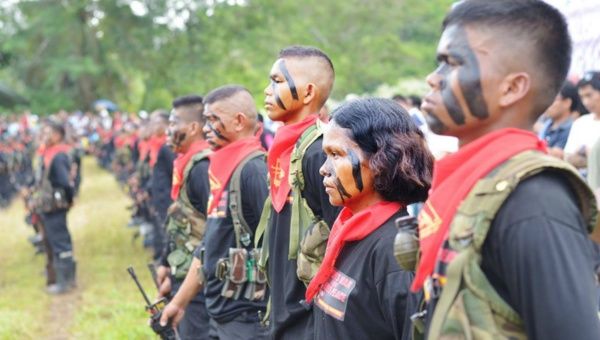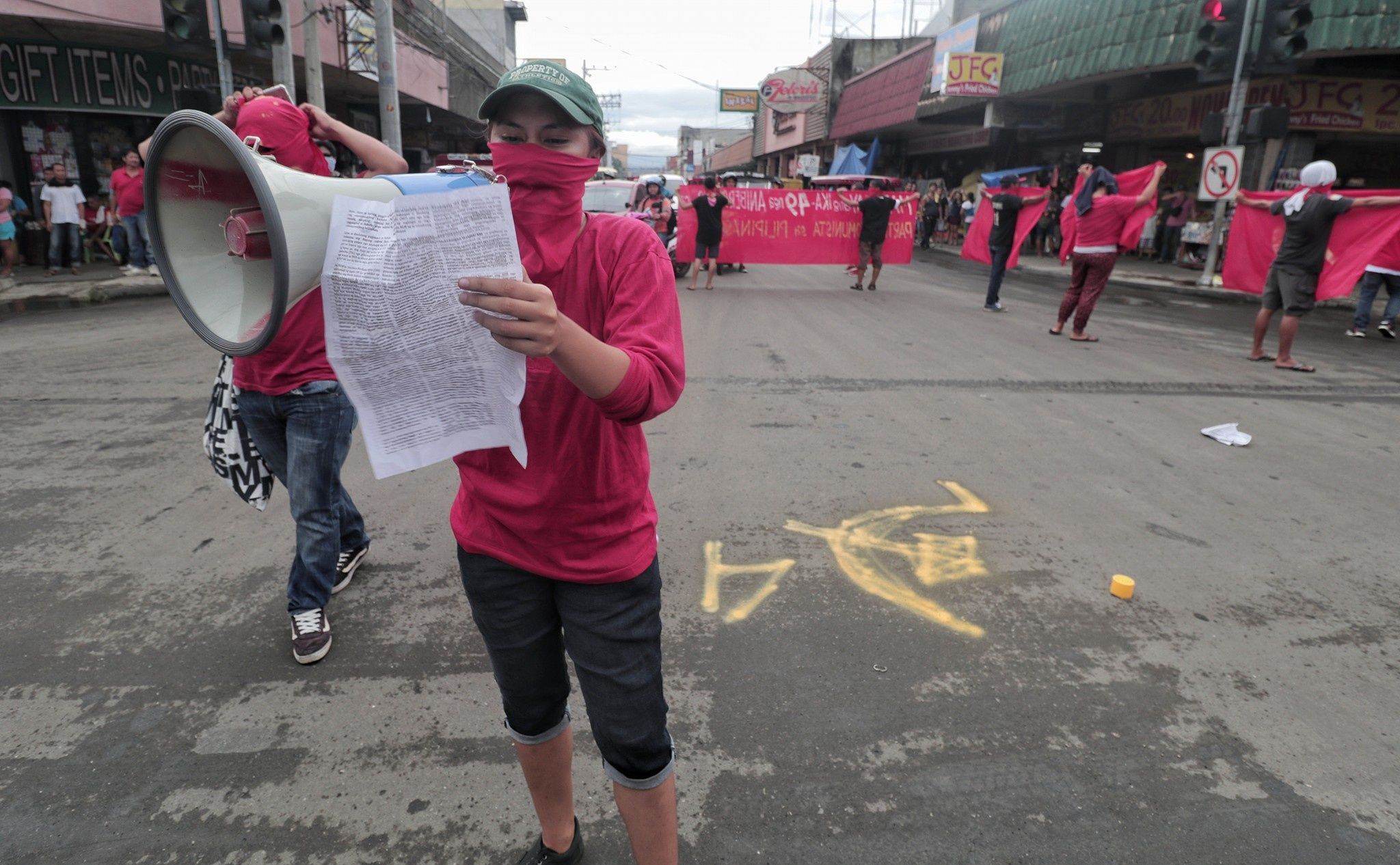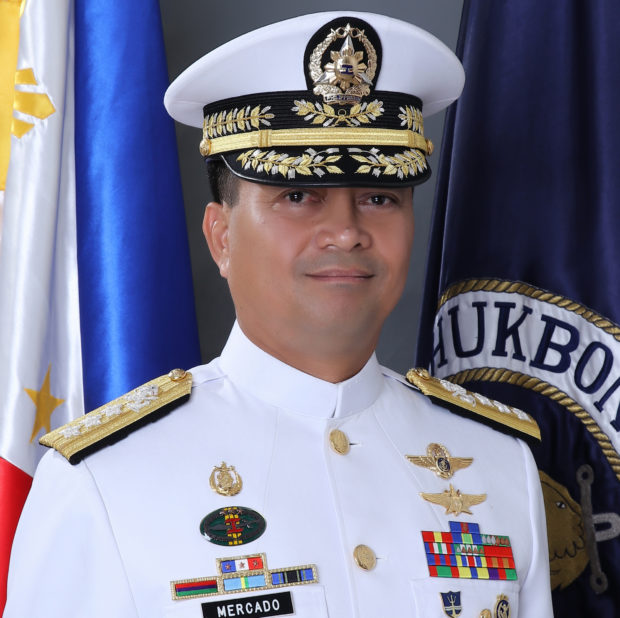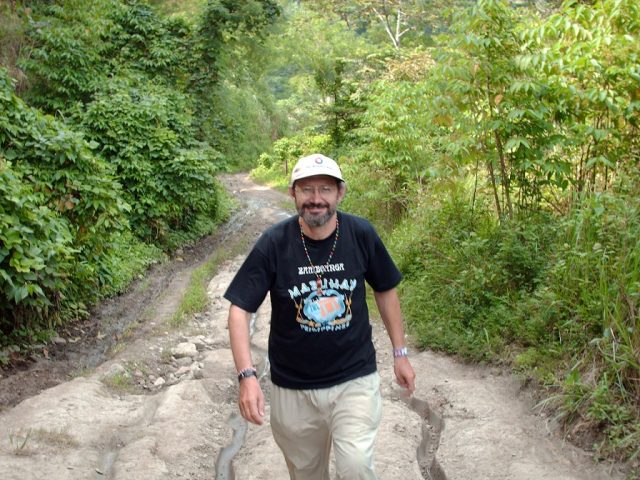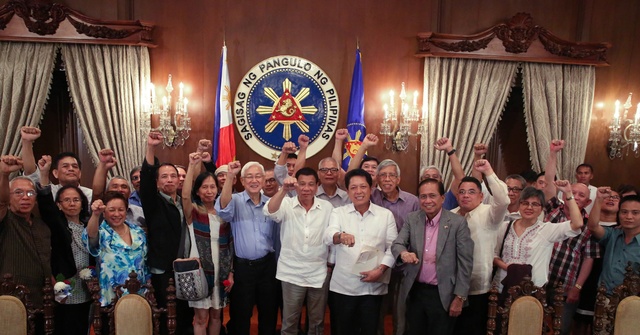From the Philippine Star (Dec 28):
AFP after Marawi battle: On the slow boat to territorial defense or back to internal security? (By Renato Cruz De Castro, Ph.D.)
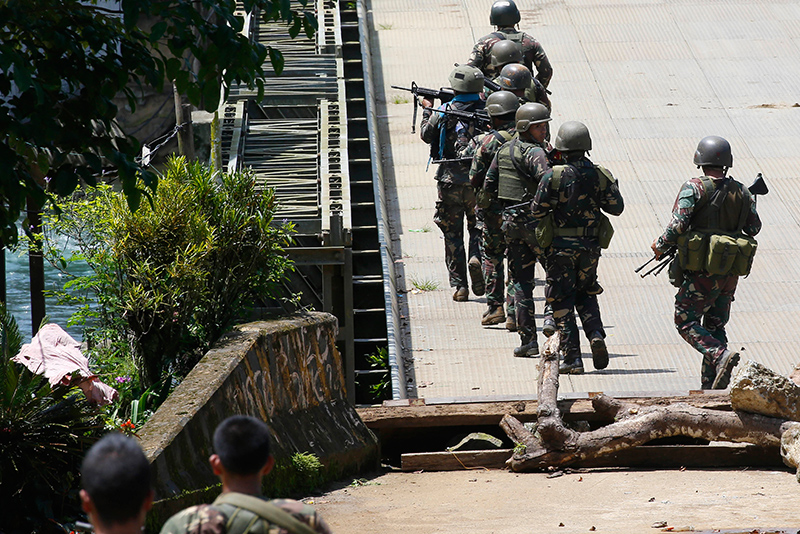 Government troops cross a bridge that Muslim militants tried to blow it up, to secure a village in the outskirts of Marawi city Tuesday, May 30, 2017, in southern Philippines. Philippine forces pressed their offensive to drive out militants linked to the Islamic State group after days of fighting left corpses in the streets and hundreds of civilians begging for rescue from a besieged southern city of Marawi. AP/Bullit Marquez
Government troops cross a bridge that Muslim militants tried to blow it up, to secure a village in the outskirts of Marawi city Tuesday, May 30, 2017, in southern Philippines. Philippine forces pressed their offensive to drive out militants linked to the Islamic State group after days of fighting left corpses in the streets and hundreds of civilians begging for rescue from a besieged southern city of Marawi. AP/Bullit MarquezSince it became an independent state in 1946, the Philippine has been bedeviled by the perennial insurgency problem. As a result, the Armed Forces of the Philippines has long focused its attention, efforts and resources on containing domestic rebel movements.
During Gloria Macapagal-Arroyo’s nine-year presidency, the AFP launched a single-minded campaign aimed at neutralizing the various insurgent movements in the country by 2010. In 2009, however, the Arroyo administration was suddenly confronted by the ubiquitous Chinese naval presence in Philippine territorial waters and increasing assertiveness in the South China Sea dispute.
China’s belligerent behavior against the Philippines began when Arroyo signed Republic Act No. 9522 or the Philippine Baseline Act into a law in March 2009. Immediately after, China deployed a fishery patrol vessel, and in the following month, sent six more patrol vessels allegedly to curb illegal fishing in the disputed area. The Philippine government then realized the need to develop its naval capability to protect its vast maritime borders and its territorial claim over some land features in the South China Sea.
The Aquino administration’s shift to territorial defenseThe AFP’s shift from internal to territorial defense, however, gained momentum when Benigno Simeon Aquino III became president in 2010. Then President Aquino spoke of “enhanced security” for national defense and put forward the country’s claim of the territories in the South China Sea through the modernization of its navy and the air force.
These official pronouncements relative to modernizing the AFP were geared toward redirecting the Philippine military away from asymmetric/low intensity conflicts (LICs) to territorial defense/maritime security. This shift required providing the AFP with the necessary equipment, technical training and expertise for external defense.
In turn, the Philippine military must train its officers and personnel to broaden their skills, knowledge, and capability in territorial defense instead of merely discharging constabulary functions, and undertaking socio-civic activities—a role it has performed since the Philippine became independent in 1946.
The Aquino administration’s defense goal was very modest--to develop a credible posture for territorial defense and maritime security through building a competent force capable of defending the country’s interests and the land features it occupies in the South China Sea. Despite this unambitious objective, however, the Aquino administration was immobilized by scant financial resources.
During its six-year term, the Philippine government acquired only two second-hand U.S. Coast Guard Cutter (The BRP Gregorio Del Pilar and the BRP Alcaraz), and signed the contract for 12 F/A-50 multi-purpose fighter planes from South Korea. Though the Philippine Navy acquired six Multi-Purpose Attack Crafts (MPAC), the Department of National Defense postponed the purchase of missile-armed MPAC after the DBM finally releases the funds.
Furthermore, it could not source the much-needed war materiel such as blue-water missile-armed ships, search-and-rescue vessels, naval helicopters, strategic sea lift ships and top-of- the-line interceptors to protect the country’s oil exploration projects and territorial claims in the South China Sea because of the shortfall in funds allocated by the Philippine Congress.
The Duterte administration’s one step forward, two steps backwardBefore his inauguration on June 30, 2016, President Rodrigo Duterte declared that he wanted a closer relationship with China and that he would not continue the military modernization program started by his predecessor. His early statements indicated that he would not pursue the modernization of the AFP with as much vigor as former President Aquino. His newly appointed chief of the AFP, Lieutenant General Ricardo Bisaya, declared “that internal security will take precedence over external defense and that the military will invest more in speed boats and helicopters.”
Analysts and observers thought that Duterte would follow former President Gloria Macapagal-Arroyo’s national security policy of gravitating close to China while ignoring territorial defense and focusing on neutralizing domestic security challenges such as terrorism and insurgencies. The AFP’s modernization was linked to then President Aquino’s agenda of challenging China’s expansive maritime claim in the South China Sea. Duterte’s agenda to improve bilateral relations with China may mean that public investments to territorial defense would be decreased if not be terminated.
However, a few days after Duterte’s inauguration, his administration slowly changed his tune on the AFP modernization. Department of National Defense Secretary Delfin Lorenzana assured the AFP and the Filipino public that the Duterte administration would pursue the modernization of the Philippine military.
Lorenzana stressed that territorial defense is one of the priorities of the Duterte administration because “it is very important as we need to protect our territories against encroachment by other parties.” He added that the 15-year AFP modernization program will continue as scheduled.
He, however, clarified that there will be some “redirection” as the Duterte administration is determined to decisively deal with criminality, especially the Abu Sayyaf bandits, as it gives the Philippines a bad name due to a series of kidnappings of Malaysians and Indonesian sailor off the Sulu Sea.
In July 2016, Duterte assured troops of the 6th Infantry Division that he will continue the Aquino administration’s efforts to modernize the AFP. He declared that “there will even be no refocusing of the modernization thrust. We will only adjust our priorities (to internal defense).”
This policy statement is reflected in the 15 percent rise in defense spending for 2017 with the allocation for the modernization program raised from P15 billion (US$333million) to P25 (US$555million).
In mid-September 2016, the Department of National Defense announced it would sign a P16 billion (US$355million) deal with Hyundai Heavy Industries for the Philippine Navy’s acquisition of two new frigates and their weapons systems. This project is part of the Aquino administration modernization program that aimed to enhance the AFP’s territorial defense and disaster response capabilities.
The Duterte administration’s moves to build up the AFP’s territorial defense capabilities by acquiring two new frigates for the Philippine Navy underlined its intent to build-up its maritime capabilities while at the same time establishing a détente with its biggest maritime claimant state in the South China Sea dispute, China.
Despite Duterte’s and Chinese President Xi Jin Ping’s declaration that their countries’ long-lasting friendship is unbreakable, the two sides are still at odds over matters such as fishing rights in the Scarborough Shoal and on the role of the favorable PCA award in the planned bilateral negotiations to manage their territorial dispute in the South China Sea.
Furthermore, the Duterte administration also cannot simply ignore China’s maritime expansion given that the former is exploring ways of increasing the production of oil and gas in the future, with most of these resources located in the disputed waters.
The battle for Marawi: Revealing the resilience of internal security challengesThe AFP modernization program is divided into three horizons or phases.
During the Aquino administration, the government allocated P85 billion (US$1.75 billion) for the First Horizon that entailed the acquisition of military hardware both for counter-insurgency and territorial defense. The Duterte administration is supposed to implement the Second Horizon that would require the allocation of P125 billion (US$2.25 billion) for the acquisition of equipment primarily for territorial defense.
However, the occupation of Marawi City by local and foreign Islamic militants affiliated with the Islamic State of Syria and Iraq forced the government to reconsider its plan to pursue the second phase of the AFP modernization program.
On May 26, 2017, more than 1,000 Islamic militants led by the Maute Group and flying the black flag of ISIS occupied the lakeside city of Marawi. The militants immediately took control of the city center, established and controlled several checkpoints on several key bridges, and deployed several well-armed and trained snipers in many of the city’s mosque.
Effectively, thousands of innocent civilian were caught in the middle of the city which rendered a full-scale AFP assault difficult and risky. The militants also positioned several snipers in the tall buildings which forced Philippine troops to maintain a safe distance from the center of the city.
It was also reported that several foreign militants from Malaysia, Indonesia, Chechnya, Yemen and Saudi Arabia fought alongside their Filipino counterparts. Consequently, the militants were able to capture a fifth of the city.
The militants were able to defend their enclaves as the AFP—trained and used primarily in conducting counter-insurgency operations in the jungles—found it difficult to wage an effectively urban warfare against well-armed Islamic militants who were prepared to sacrifice their lives for their cause.
Frustrated by its initial attempts to liberate the city, the Philippine military adopted a strategy of destroying the city in order to save it. The AFP waged a face-to-face urban warfare against the militants as they rooted them out through house-to-house and building-by-building fighting.
The Philippine Air Force used its attack helicopters and fixed-wing aircraft to bombard the militants’ positions in the city. The Philippine Army and marines relied heavily on air-support, artillery and armor personnel carriers to neutralize the militants’ strongholds in the city.
After four months of bloody scorched-earth combat, the AFP took control of Marawi City in late October 2017.
Seeking the balance between internal security and territorial defenseThe four-month battle for Marawi City uncovered several challenges that the AFP faces in the second decade of the 21st century.
Despite some efforts to develop its territorial defense capabilities since 2010, the AFP remains deficient in intelligence, surveillance and reconnaissance capabilities. It also lacks basic infantry equipment such as bullet-proof vests, helmets, night-vision goggles, bullets, ordinance, modern ground-attack aircraft and even tanks.
It also exposed a major structural problem that as the AFP tries to modernize its capabilities to confront a vast array of new challenges; the resilience of internal security threats has not only altered the country’s security perceptions, but also imposed greater resource constraints as it seeks to improve its overall capabilities.
In August 2017, during the height of the battle for Marawi City, Duterte asked the Congress to provide funding for additional 20,000 troops. With only about 130,000 personnel spread all over the country, there is now a concern that the AFP’s ability to deal with a range of internal and external security threats following decades of strategic slack and underinvestment in national defense.
The most important challenge the AFP faces, however, is seeking the appropriate balance between internal and external security considerations that has long bedeviled any attempts to modernize the Philippine military.
With a budget amounting to less than one percent of the country’s gross domestic product, how can the AFP address a spectrum of security challenges such as insurgencies, natural disasters, unresolved territorial and sovereignty issues with neighboring states, and increasing geo-strategic competition among the great powers in East Asia?
[Renato Cruz De Castro, Ph.D. is a trustee and program convenor for foreign policy and regional security at the Stratbase Albert Del Rosario Institute (ADRi) and a professor at the De La Salle University.]http://www.philstar.com/news-feature/2017/12/28/1772540/afp-after-marawi-battle-slow-boat-territorial-defense-or-back





